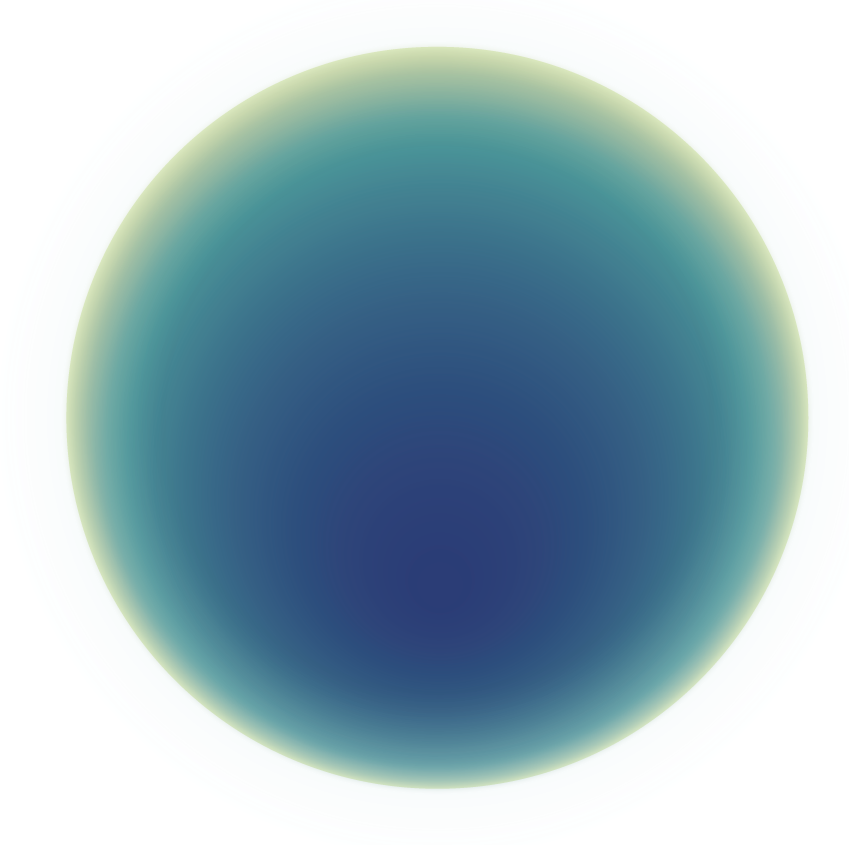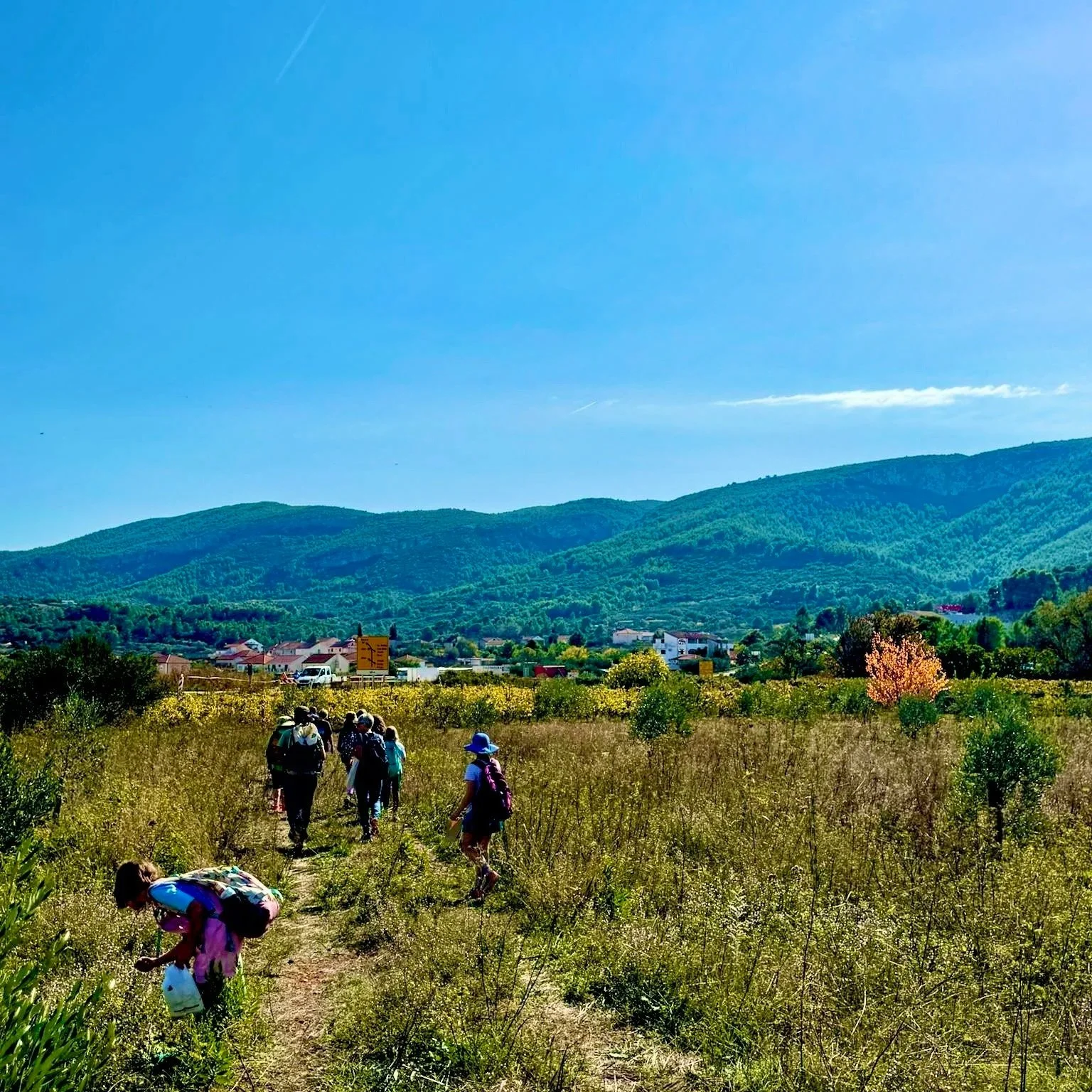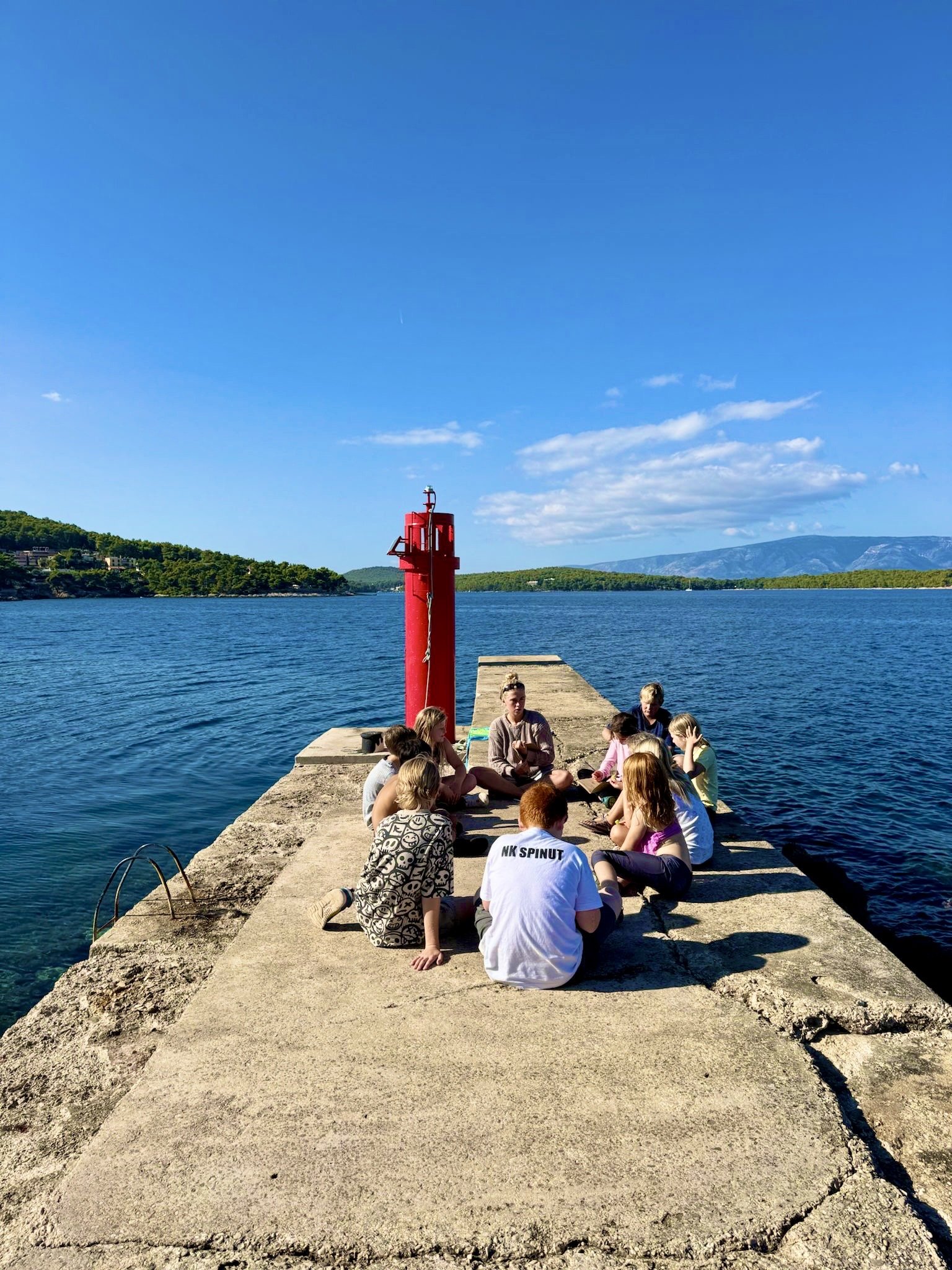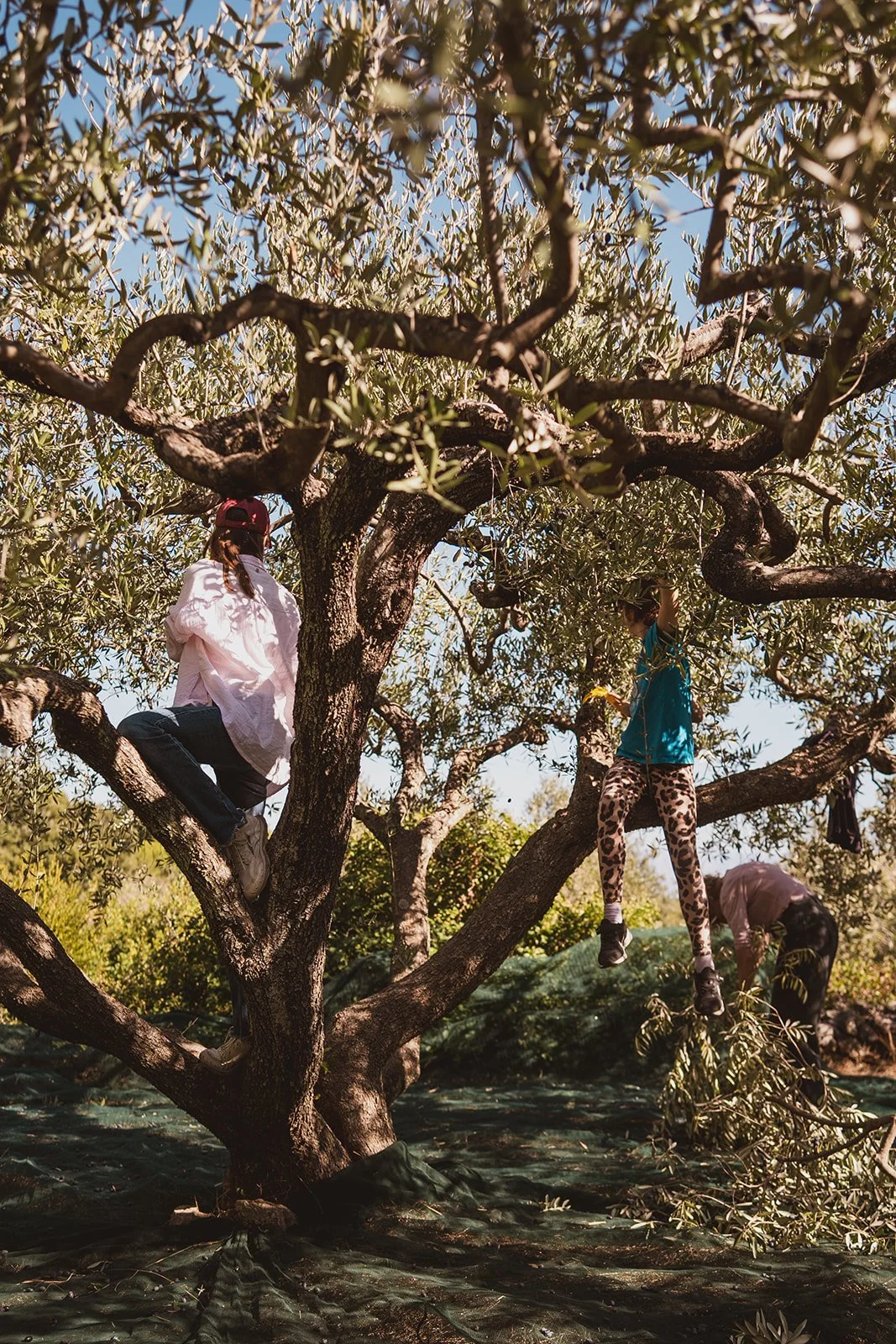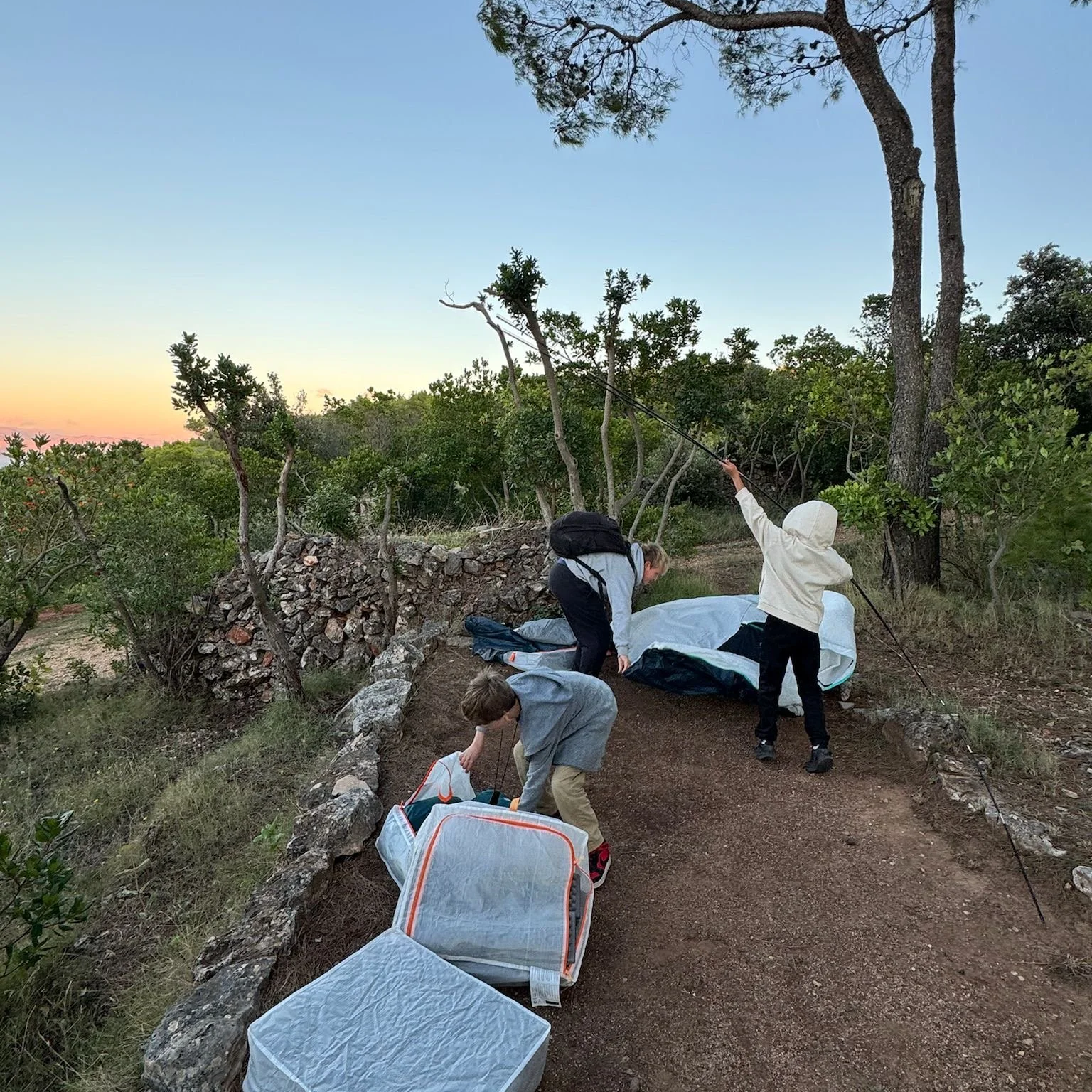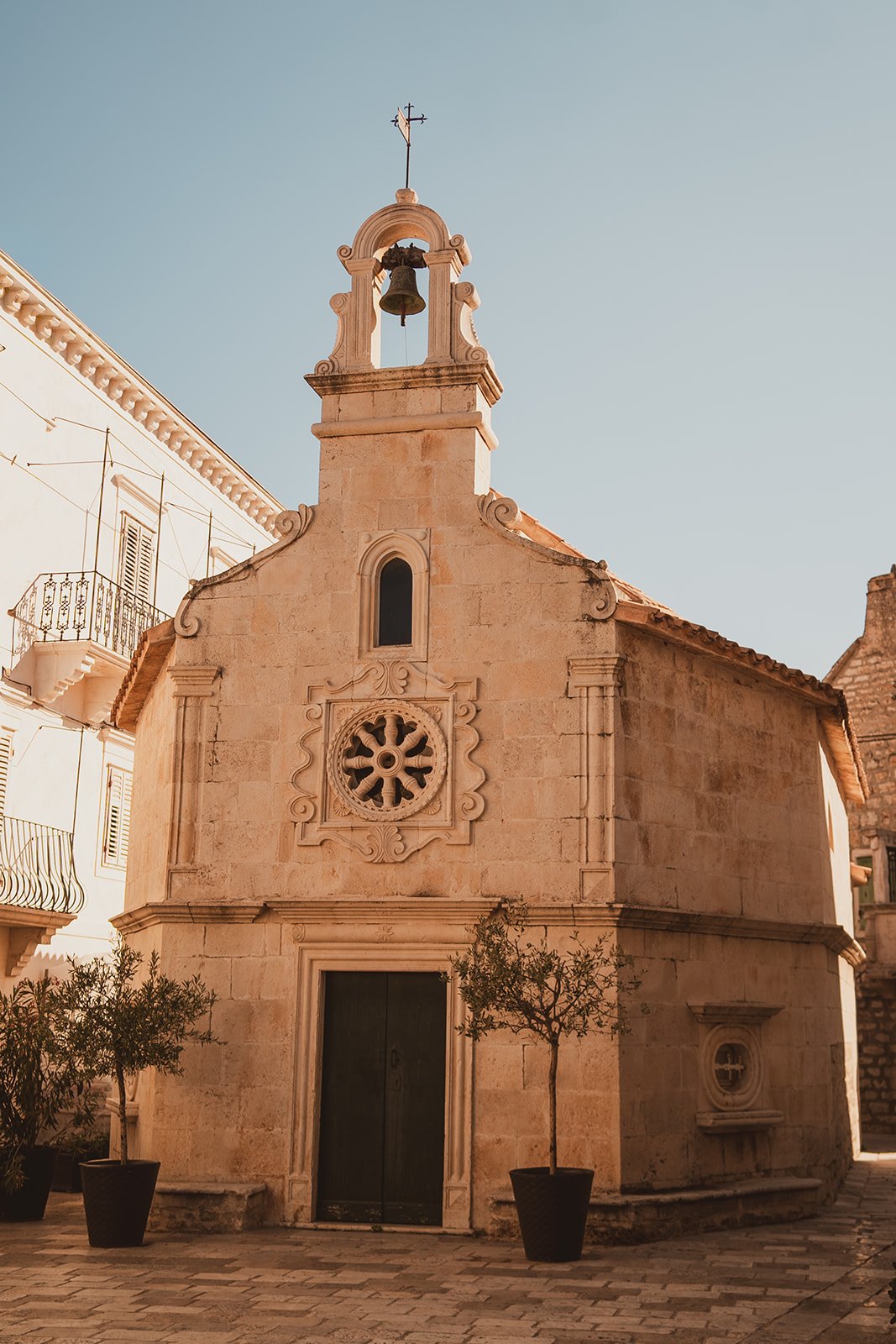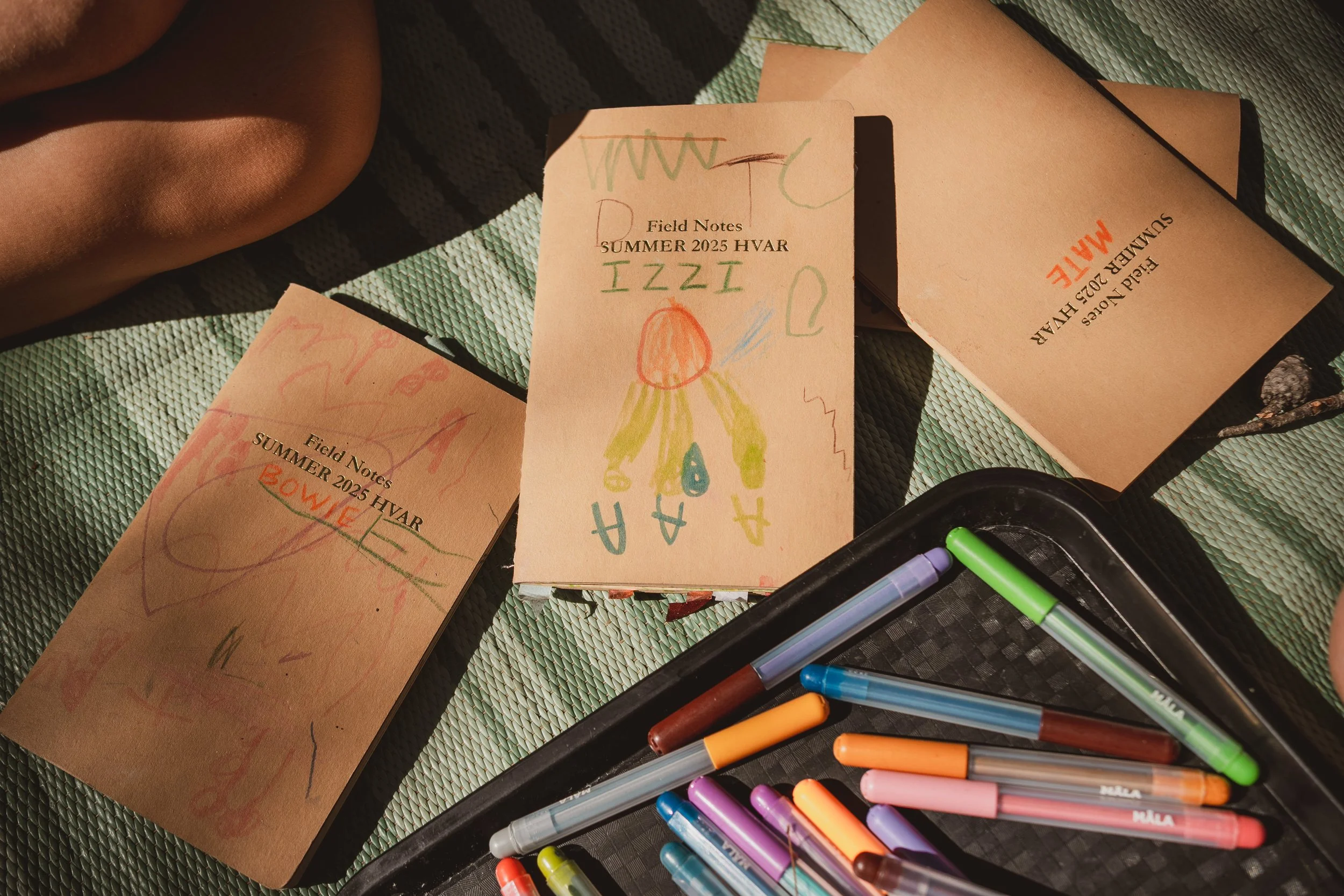A family coliving village
Sociable, gorgeous, and interesting, our little village on the Adriatic Sea offers a new kind of community, reviving the Mediterranean lifestyle at its bucolic best. Balancing stability with travel and adventure, we are here together to have fun and live life with curiosity. Parents and kids contribute to the vitality of our culture by sharing their passions and talents. Kids learn outdoor skills to make the most of the island’s incredible cliffs, sea, fields, and trails. Joy and reverence inspired by this beautiful setting give us energy to take on ambitious goals. Memories are made in nature and with friends without the distraction of screens.
Community Life
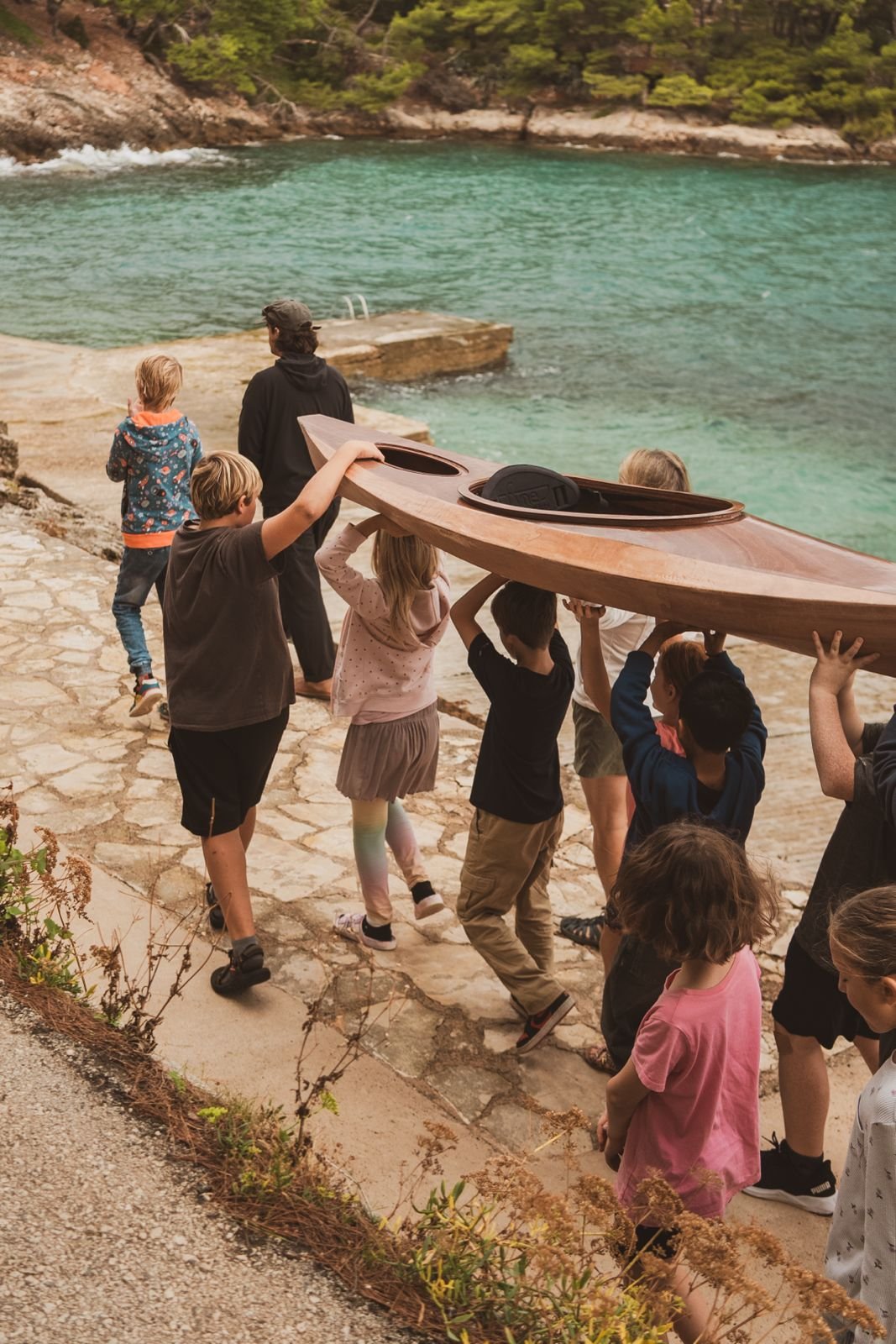
CULTURE
Family life as it should be
Conventional patterns of school and work prevent us from spending time with our favorite people. At The Field School of Hvar, we all “work” in the same building: parents in the coworking lounge; kids in the learning center. We frequently run into each other on walks to town or the beach. Accommodations combine privacy and proximity, transforming strangers into friends, and friends into an extended support network for life’s big and little challenges. It’s not an intentional community. It doesn’t need to be. It’s a village.
Much of our culture emerges from the hobbies, skills, and traditions that our families want to share. In our first fall session, families hosted a pasta-making workshop, an afternoon crochet, and a trick-or-treat evening with DIY lanterns. For each other, parents hosted meditation, yoga, a men’s group, sound baths, wine tastings, and acupuncture. One set of parents dedicated significant time to building a wooden kayak together, creating a carefully thought-out series of opportunities for learners of all ages to contribute.
The Field School is a platform for its people, adding in a bit of facilitation to spark connection and keep things interesting. In school, children bond by learning Croatian songs and phrases together. Big and little kids pair up for reading time and free play. Every Friday ends with a short assembly, and every session ends with a big reveal of student projects.
For adults - which emphatically includes aunts, uncles, grandparents, and friends - The Field School breaks the ice with a farm-to-table welcome dinner three times per year, followed by free or inexpensive get-togethers: a hike, an apertivo, a simple workshop. We help organize outings to local events, can troubleshoot confusing or stressful moments on the island, and host celebrations around major Croatian holidays.
As The Field School of Hvar grows, we will have additional opportunities for parents to partner or volunteer. For example, we will be building a community garden - the first step towards a more permanent, regenerative campus. Parents are warmly invited to step into these roles and get to know Hvar better.
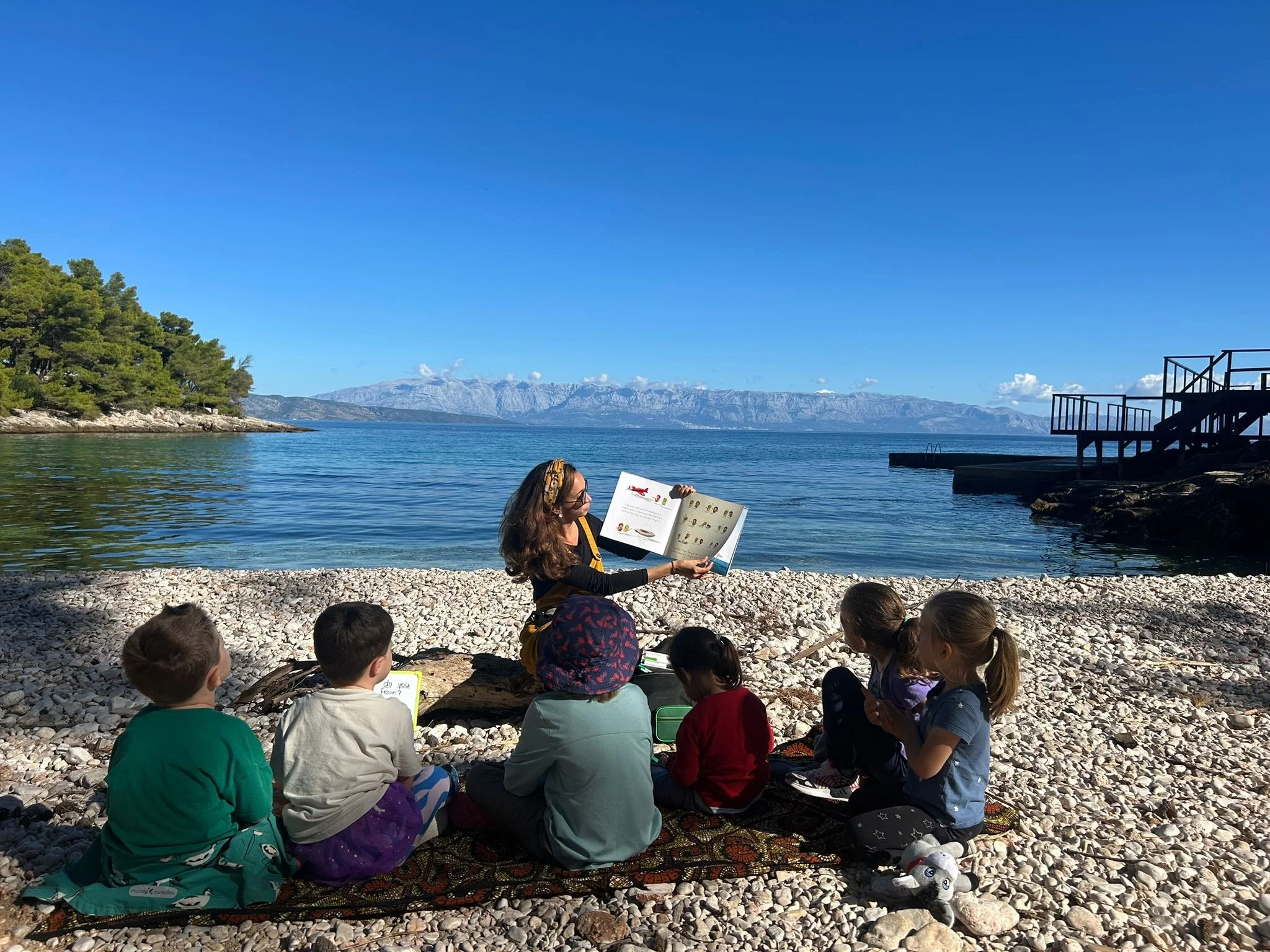
ISLAND HOME
Hvar is a truly special place. Nearly two hundred families have now participated in The Field School of Hvar, and nearly all have left changed by the magic of the island. The air is clearer. The sea bluer. There is a feeling that comes with adding your story to millennia of history.
Hvar is also quite livable. The Field School is centered in Jelsa, which is surrounded by a cluster of smaller villages, including the historic town of Stari Grad. Strollers are ubiquitous. Playgrounds are full of kids. The island is home to ten thousand year-round residents, including many artists, academics, and outdoor enthusiasts. With that being the case, all of the normal services and amenities needed for daily life are here on the island: dentists, furniture stores, mechanics, and so on. For more selection, there are daily one-hour ferries to Split, a small city of about half a million people with an international airport.
Croatia is a member of the European Union and uses the euro as currency. It is fully democratic and has one of the lowest crime rates in the world. Almost every adult under the age of forty speaks English. Prices have increased in recent years, but private healthcare remains inexpensive and overall cost of living is still quite affordable compared to North American and northern Europe. Croatia also offers one of the most attractive digital nomad residencies in Europe, offering up to two years of tax-free stay for remote workers and their dependents.
Hvar is a jewel of the Mediterranean. It boasts the most UNESCO Heritages of any island in Europe, numerous well-curated museums, cultural events, and active archaeological sites. Outdoor recreation options are endless. And, despite its high quality of life, it retains a pristine, undiscovered feel.
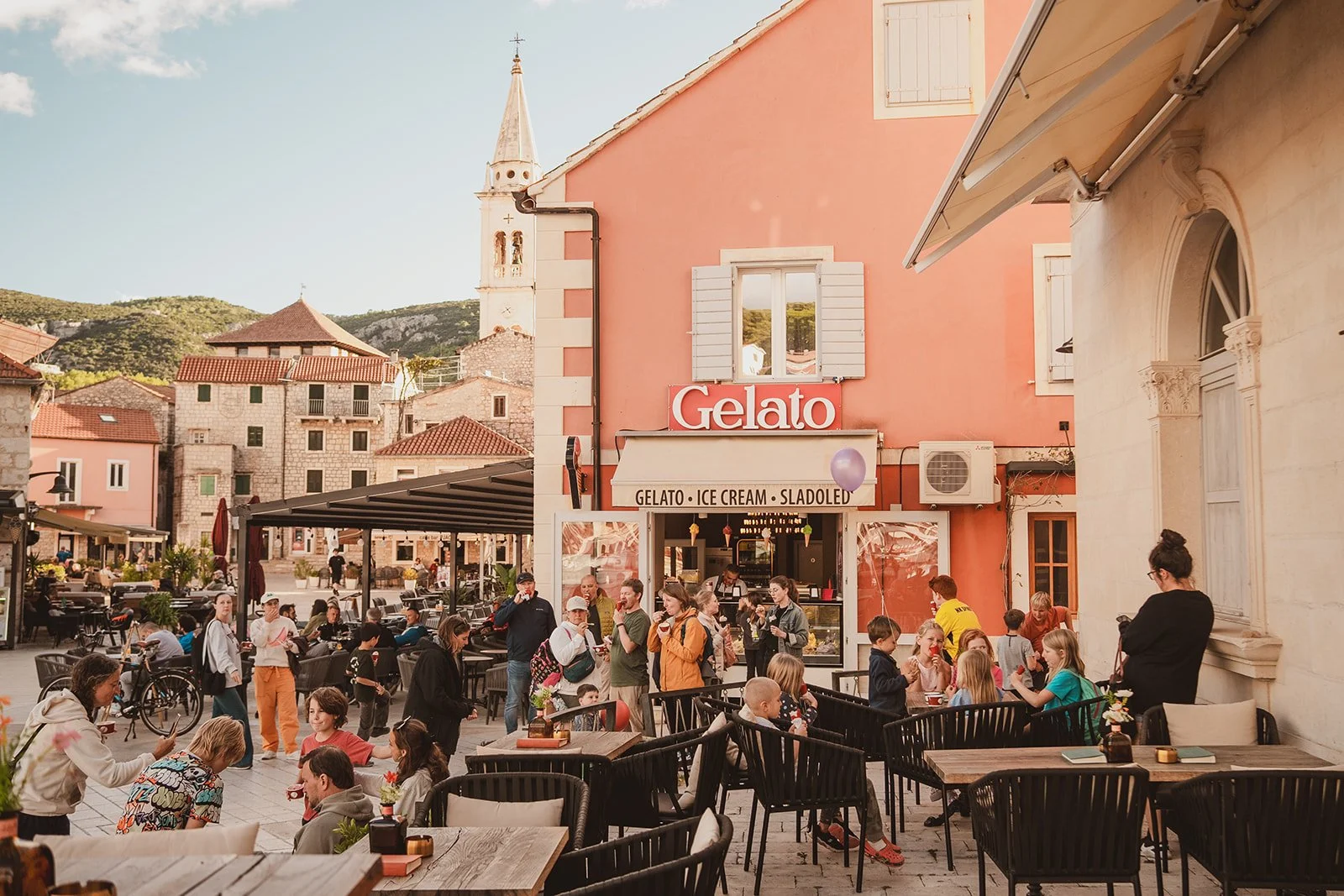
TECH POLICY
Human learning is social. Children (and adults) absorb knowledge as a living thing, inseparable from connection, status, their five senses, and joy. For this and many other reasons, The Field School of Hvar strongly limits the use of consumer technology.
There are reasonable moments to use screens. The Field School is focused on halting and reversing climate change. Technology, engineering, science, and digital communications are part of that story. Older students should and will certainly be using professional software for their projects. There are also instances where a great movie or animation can bring a topic to life - or just enrich our souls. Likewise, AI can amplify teachers to do more efficient lesson planning. School communication apps have their place.
With that said, you will not see Chrome books or learning apps at The Field School.
More controversially, we strongly limit the use of e-readers and online research. For younger children, the benefits of reading from physical books are well-documented. For older learners, the problem is that you cannot open the door to good research without letting in everything else that exists online, from the erroneous to the “can’t unsee.” Instead, the Field School has a growing library, and faculty have access to the internet and a printer to produce additional resources for learners.
Without a doubt, students will sometimes wish that they could delve deeper into a certain topic than our printed resources allow. Sometimes they will need to wait a day to get an answer to a question. Sometimes they may not get an answer at all. So they will be forced to use their imaginations, memory, and critical thinking to form their own ideas about what might be true and why, just as humans have done for centuries. Instant gratification is helpful in the moment, but a growing body of research indicates that it degrades faculties of reason and retention.
On the community level, all Field families agree to defend childhood. By enrolling in The Field School of Hvar, parents are ensured of a community where their children won’t be ostracized for not having social media or video games. Their children can know that there will always be other kids playing outside, dreaming up adventures, and being kids.

ATHLETICS, ARTS, & MORE
Outdoor recreation is a major focus at The Field School of Hvar, taking the place of conventional school sports. We choose this approach because the island is so abundant in opportunities to climb, sail, paddle, and hike, and these sports naturally support our broader mission of inspiring a deep sense of love for the natural world.
Our youngest students spend most of the day outdoors. Preschoolers can paddle in our mini-kayak, practice camping in tents, and embark on full-day walks. Children ages 7 and older spend an afternoon each week learning boating or mountaineering. Pre-teens and teens aim to take an entire week at the end of each session for a hike, sail, or paddle, staying in campsites. With a good book and nature journal in tow, students use these outdoor capstones as an important moment to consolidate learning and relationships.
In daily learning, The Field School of Hvar incorporates physical movement, craft, and arts, as well as other activities that translate into traditional extracurriculars, such as service work, debate, and creative writing. With that said, many children will want to participate in dedicated programs for sport, arts, and other activities.
There are three main options for extracurriculars on Hvar: clubs led by parent volunteers, by faculty, or by local providers. To participate in local extracurriculars, such as rowing, dance, mountaineering school, judo, theater, football, and folk dancing, children may need to speak conversational Croatian. The Field School will provide roughly an hour of Croatian language practice per day. Participation in local clubs will greatly help children acquire the language.
Parents and faculty may also choose to host clubs or workshops. The Field School is very ready to support these initiatives, so long as an effort is made to also invite Croatian children to participate.
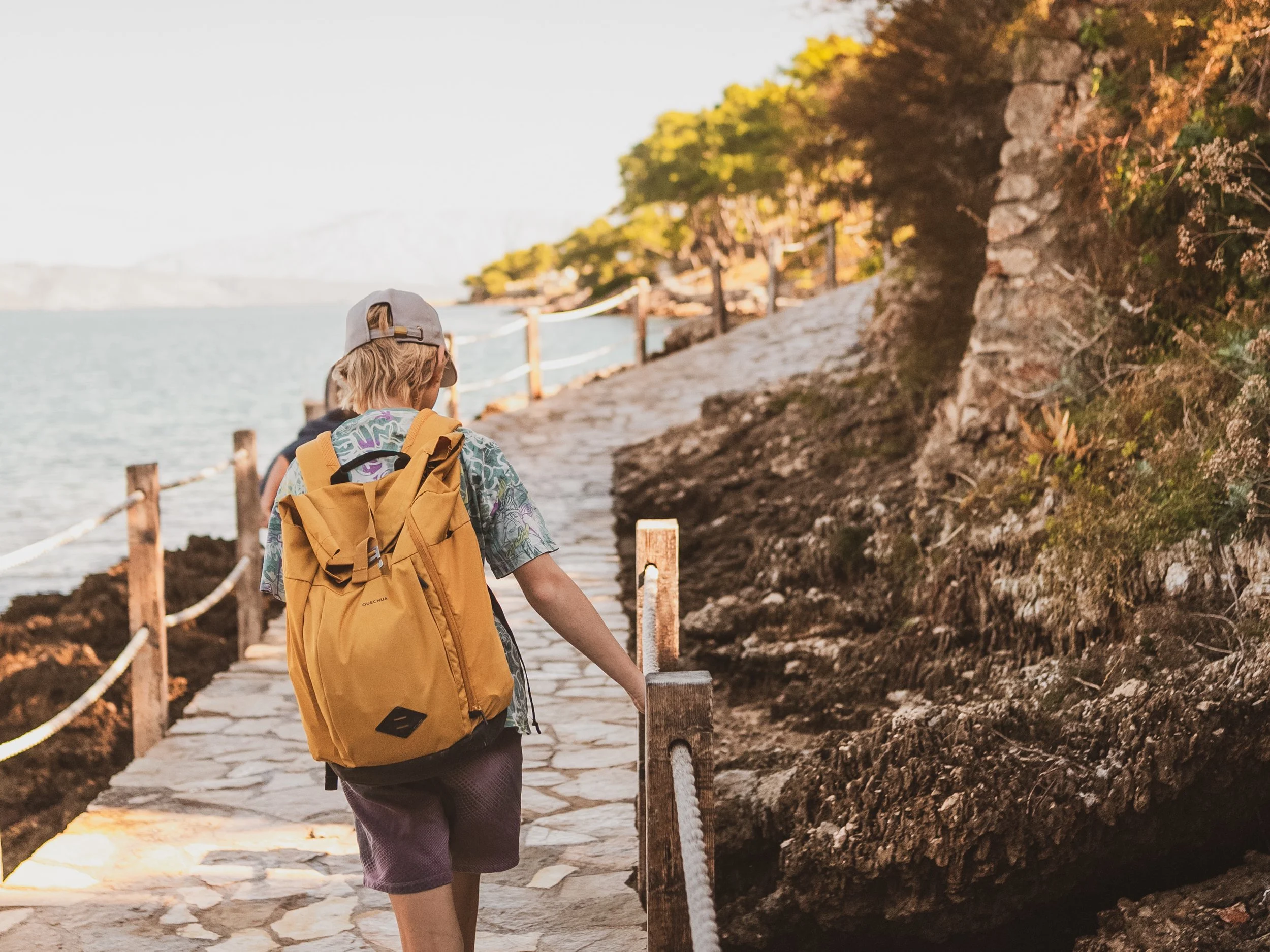
SPIRITUAL LIFE
The Field School of Hvar is a secular program in which people of all faiths are welcome. The school’s spiritual basis is Catholicism. As a faith with over 1 billion adherents, which has existed for more than two millennia across continents and empires, Catholicism means different things to different people. At The Field School of Hvar, contemporary Catholicism as endorsed by the Vatican is the bedrock of our core values: stewardship, enlightenment, and dignity.
We each have a duty to and a home in the natural world. As the late Pope Francis noted: “Alongside revelation in sacred Scripture, there is a divine manifestation in the blaze of the sun and the fall of night … Living our vocation to be protectors of God’s handiwork is essential to a life of virtue; it is not an optional or a secondary aspect of our Christian experience.”
Reason and science are gifts from God, not threats to faith. Over a century ago, Pope Leo XIII proclaimed: “For learning is in itself good, and praiseworthy, and desirable; and further, all erudition which is the outgrowth of sound reason, and in conformity with the truth of things, serves not a little to confirm what we believe on the authority of God.”
Every living thing possesses intrinsic dignity. Every individual is a beloved child of God. As the current Pope writes: “Love is above all a way of looking at life and a way of living it. A Church that sets no limits to love, that knows no enemies to fight but only men and women to love, is the Church that the world needs today.”
Children and other members of The Field School community will primarily encounter Catholicism as a foundational set of values - propelling our emphasis on humanity and mindfulness. They will also encounter the faith at holidays. These periods of the year were historically moments when a community would reflect on the human experience: death and memory at Hallowtide; inspiration and parenthood at Christmas; failure and renewal throughout Lent, Easter, and Pentecost. That is still the primary purpose of these days in Croatia, which is a Catholic country. We believe that those collective explorations are quite valuable.
Students will also encounter Catholic or Christian perspectives in their studies, particularly in the humanities, where they will read the Bible as well as Augustine, Beowulf, the Divine Comedy, Shakespeare, and other Christian and non-Christian authors or works. They will learn about laws, governments, industries, and world events that shaped and were shaped by the Church - for good and ill. They will study art and architecture, some of which was produced within a Catholic or Christian paradigm. Students and other community members will naturally discuss their own lives and our contemporary world, forming diverse conclusions. Catholic perspectives can hold a place in these studies and debates without needing to indoctrinate or cajole.
Children and other members of The Field School community will not be expected to attend Mass or participate in any other specifically religious activities. All community members are entitled to form their own opinions and choices without fear of prejudice.
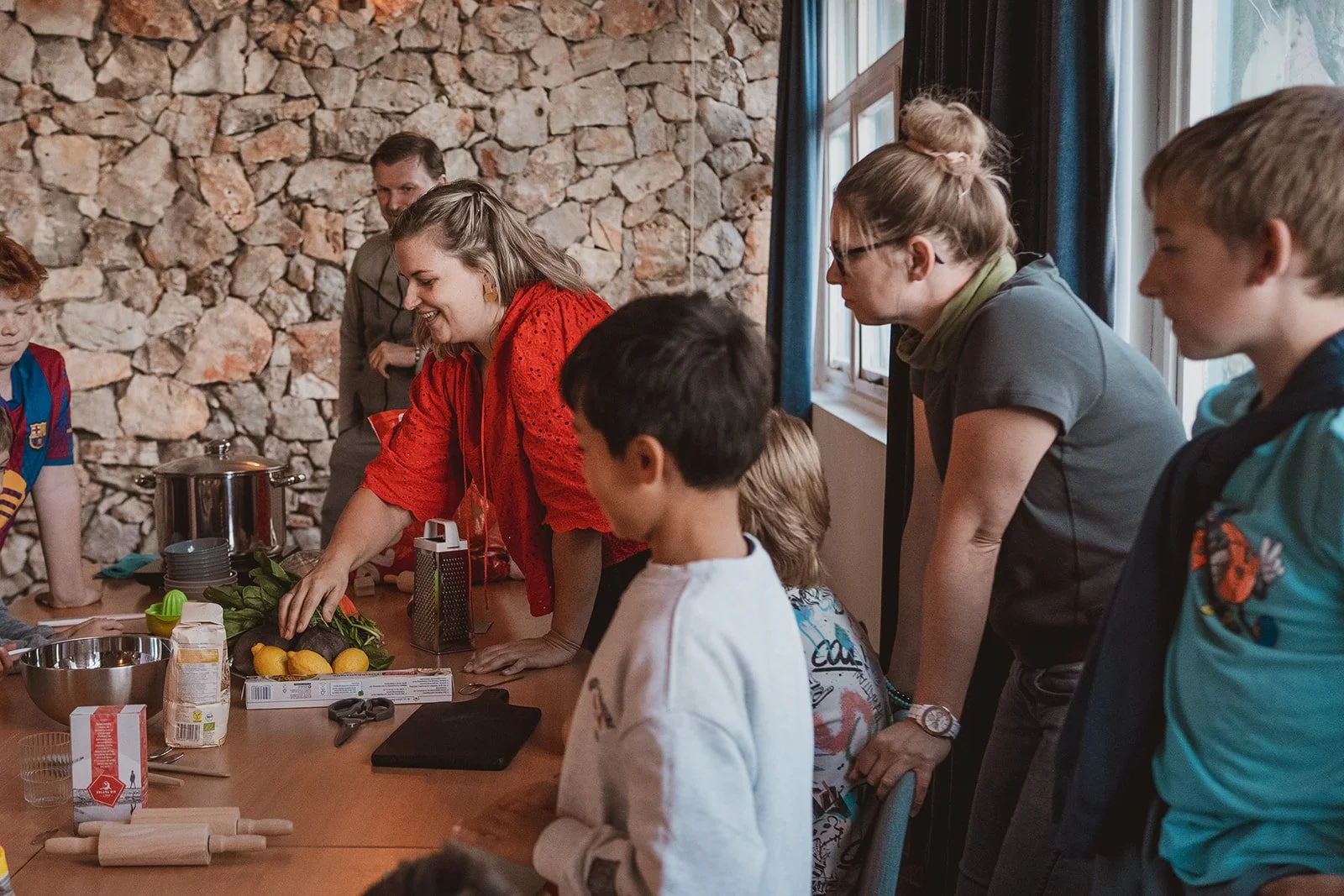
YOUR PLACE
The mission of The Field School of Hvar is to build a regenerative ecosystem on Hvar. Children contribute directly to that story through their project work and daily stewardship. Adults support this vision simply by being helpful stakeholders in the school. But there is an opportunity for passionate adults to do more: to build regenerative businesses on Hvar that tap into the island’s incredible resources and potential as a destination.
Are you fascinated by real estate? Have you always dreamed of baking or having goats? Would you love to lead families on kayaking or sailing expeditions? Between Hvar’s established reputation as a world-class tourism and its outstanding resources, there is a genuine world of possibility. As The Field School of Hvar builds momentum, we intend to use the power of our community for microbusiness incubation, a network and structure that can help great ideas take flight by providing assistance with first steps, particularly around administration.
